EFCC Arraigns Ex-governor Ishaku of Taraba State, Perm Sec for Alleged N27b Fraud
In a significant development in Nigerian politics, the Economic and Financial Crimes Commission (EFCC) has arraigned the former governor of Taraba State, Darius Ishaku, and a Permanent Secretary for their alleged involvement in a N27 billion fraud. This case has garnered widespread attention due to its implications for political accountability and governance in Nigeria.
Background of the Accused
Profile of Ex-Governor Ishaku
Darius Ishaku served as the governor of Taraba State from 2015 to 2023. Known for his infrastructural projects and efforts to improve the state’s economy, Ishaku’s tenure was not without controversy. His administration faced several allegations of financial mismanagement, which have now culminated in this high-profile case.
Profile of the Permanent Secretary
The Permanent Secretary involved in the case has been a long-serving civil servant in Taraba State. Their role in the alleged fraud has raised questions about the integrity of the state’s bureaucratic processes and the checks and balances in place to prevent such occurrences.
Details of the Alleged Fraud
Breakdown of the N27 Billion Fraud
The EFCC has accused Ishaku and the Permanent Secretary of diverting N27 billion meant for developmental projects in Taraba State. The funds were allegedly siphoned through a series of fraudulent contracts and shell companies, with the proceeds being laundered through various channels.
How the Fraud Was Allegedly Carried Out
According to the EFCC, the fraud involved awarding contracts to non-existent companies, inflating contract values, and diverting funds meant for public projects. These activities were allegedly facilitated by a network of accomplices within the state’s administration.
Role of the EFCC
What is the EFCC?
The Economic and Financial Crimes Commission (EFCC) is Nigeria’s foremost anti-corruption agency. Established in 2003, the EFCC is tasked with investigating and prosecuting financial crimes, including fraud, money laundering, and corruption.
EFCC’s Involvement in the Case
The EFCC began investigating Ishaku and the Permanent Secretary following a series of petitions and whistleblower reports. The agency’s investigation uncovered a complex web of financial transactions that pointed to large-scale embezzlement and fraud.
Legal Proceedings
Initial Charges and Arraignment
Ishaku and the Permanent Secretary were formally charged with multiple counts of fraud, money laundering, and abuse of office. They were arraigned in a Federal High Court, where they pleaded not guilty to the charges.
Court Hearings and Legal Arguments
The court hearings have seen a series of legal arguments from both the prosecution and the defense. The EFCC has presented evidence of financial irregularities, while the defense has challenged the admissibility of some of the evidence and questioned the motives behind the investigation.
Public Reaction
Media Coverage
The case has received extensive media coverage, with news outlets providing detailed reports on the proceedings. The coverage has sparked widespread debate about corruption in Nigerian politics and the effectiveness of anti-corruption measures.
Public Opinion and Reactions
Public opinion has been divided, with some viewing the case as a necessary step towards accountability, while others see it as politically motivated. The case has also reignited discussions about the need for greater transparency in government dealings.
Political Implications
Impact on Taraba State Politics
The arraignment of a former governor has significant implications for Taraba State politics. It has led to calls for greater scrutiny of current and former public officials and has highlighted the need for systemic reforms to prevent corruption.
Broader Implications for Nigerian Politics
On a national level, the case underscores the pervasive nature of corruption in Nigerian politics. It has prompted calls for stronger anti-corruption institutions and more robust legal frameworks to hold public officials accountable.
Defense and Counterarguments
Statements from the Defense
The defense has maintained that Ishaku and the Permanent Secretary are innocent of the charges. They argue that the case is based on politically motivated allegations and that the evidence presented by the EFCC is circumstantial.
Analysis of the Defense’s Arguments
While the defense’s arguments have found some support, the weight of the evidence presented by the EFCC has made it difficult to dismiss the charges outright. The case continues to unfold, with both sides presenting their arguments in court.
Previous Cases of Political Corruption in Nigeria
Historical Context
Nigeria has a long history of political corruption, with numerous high-profile cases involving public officials. These cases have often highlighted the challenges of combating corruption in a system where political and financial interests are deeply intertwined.
Comparison with Other High-Profile Cases
The Ishaku case is reminiscent of other notable corruption cases, such as those involving former governors James Ibori and Diepreye Alamieyeseigha. These cases have shown that while progress is being made, significant challenges remain in the fight against corruption.
Impact on Governance and Public Trust
How Such Cases Affect Governance
Cases of political corruption have a detrimental impact on governance. They undermine public trust in political institutions, divert resources away from essential services, and hinder economic development.
Public Trust in Political Institutions
The Ishaku case has further eroded public trust in political institutions. It has highlighted the need for greater transparency and accountability in government and has underscored the importance of robust anti-corruption measures.
Preventive Measures
Steps to Prevent Political Corruption
To prevent political corruption, it is essential to implement comprehensive reforms that address the root causes of corruption. This includes strengthening anti-corruption institutions, enhancing transparency in government dealings, and promoting a culture of accountability.
Role of Transparency and Accountability
Transparency and accountability are crucial in the fight against corruption. By ensuring that government actions are open to public scrutiny and that officials are held accountable for their actions, it is possible to reduce the incidence of corruption.
Future of the Case
Possible Outcomes
The outcome of the Ishaku case remains uncertain. Possible outcomes include a conviction, acquittal, or a plea bargain. The case’s resolution will have significant implications for the fight against corruption in Nigeria.
Long-Term Implications
Regardless of the outcome, the case will have long-term implications for Nigerian politics. It will likely influence future anti-corruption efforts and shape public perceptions of the effectiveness of the country’s legal and political systems.

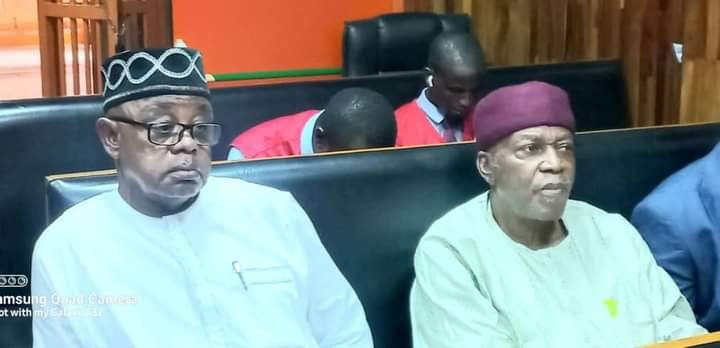
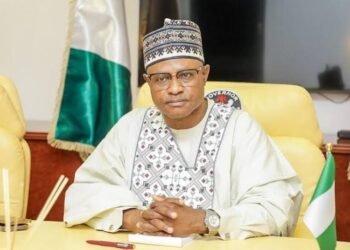

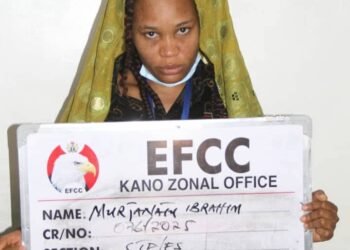
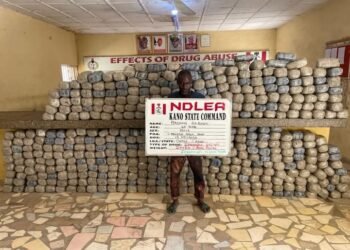

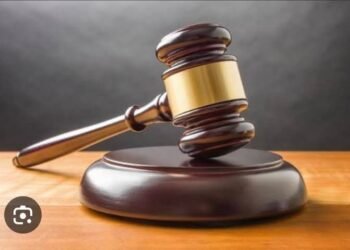


![Portable Orders Assault On Car Dealer Over Delayed Vehicle Delivery [VIDEO]](https://accesspost.ng/wp-content/uploads/2024/09/Portable-120x86.jpg)


